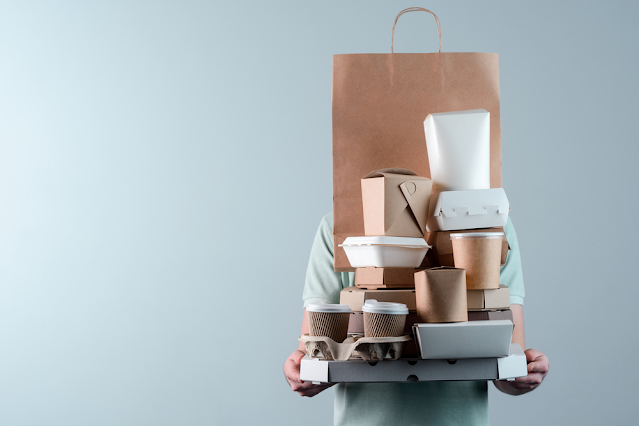From Concept To Carton: The Artistry Of Board Packaging
Packaging plays a crucial role in today's market. Whether it is marketing a product or protecting it during transportation, effective packaging is extremely important. One of the most widely used and sustainable packaging options is board packaging. In this article, we will discuss the importance of board packaging and how it benefits various industries.
What is Board Packaging?
Board packaging refers to the use of paperboard or cardboard for packaging
purposes. Paperboard is a thick paper-based material that is sturdier than
normal printing or writing paper. It is commonly used to make folding cartons,
set-up boxes, tube and corrugated boxes. Folding carton packaging involves
die-cutting and folding paperboard sheets into boxes or cartons of desired
sizes and shapes. These cartons provide protection, visibility and branding
opportunities for products.
Folding carton packaging is an extremely versatile form of packaging that is
used across various industries like food, beverages, pharmaceuticals,
cosmetics, electronics and more. It offers properties like foldability,
printability, cost-effectiveness and sustainability. Folding cartons allow
companies to package and ship their products safely while also promoting the
brand visually.
Protecting Products During Transportation
Effective packaging plays a vital role in protecting products from damage
during transportation from the manufacturing facility to the retailer or end
consumer. Board packaging such as folding cartons, displays excellent crush
resistance thanks to their thickness. This makes them highly suitable for
packaging fragile items like food, cosmetics, electronics or glassware. The
thick yet lightweight paperboard absorbs shocks and prevents items from
breaking during distribution and shipping. It also provides cushioning to
reduce risk of impacts. This is a major advantage for manufacturers who want to
reduce product damage and returns.
Sustainability Benefits of Board Packaging
In today's environmentally conscious world, sustainability has become a top
priority for packaging. Board packaging scores high on sustainability compared
to alternatives. Paperboard is both renewable and recyclable. It is
manufactured from sustainably harvested trees and various recycling programs
allow paperboard packaging to be recycled multiple times. Using recycled
paperboard further reduces environmental footprint. Additionally, paperboard
packaging has a lower carbon footprint versus plastics and other
petroleum-based packaging materials. They also don't pollute the eco-system
like plastic and can degrade completely over time. These sustainability
properties are driving more brands to switch to board packaging.
Brand Promotion Capabilities
Another key advantage of Board
Packaging is the excellent branding opportunities it offers to market
products. The large surface area of folding cartons and displays allows for
high quality graphics, images and text. Sophisticated printing technologies
enable detailing and embossing effects on paperboard. This helps packaging
itself act as a point-of-purchase marketing tool. Catchy graphic designs,
product information and promotions printed on cartons catch consumer attention
on shelves. Packaging plays a significant role in brand communication and
purchase decisions. Therefore, paperboard packaging scores high on branding
needs of companies across industries.
Cost-Effectiveness
While board packaging may have higher material costs than alternatives, it
offers a decent balance of cost and functionality. Once the initial die is set
up, folding cartons can be produced cost-effectively at high speeds on
automated packaging lines. Their reduced likelihood of damage also decreases
costs associated with product wastage or returns. Additionally, corrugated and
paperboard materials are cheaper than plastics and common recyclable alternatives.
Overall, the right board packaging solution delivers a sweetspot of cost and
performance for companies.
Demand Across Industries
Given the versatility and advantages discussed above, board packaging finds
widespread application across industries:
Pharmaceuticals: Used for packaging tablets, capsules and other
drugs/medicines. Offers tamper evidence, printability for information and
protects products.
Food: Popular for dry foods, snacks, cereal boxes. Maintains freshness,
provides graphics for shelf appeal and fibre content adds rigidity.
Beverages: Juice cartons, milk cartons effectively package liquids while
preventing leakage and breakage.
Electronics: Protect delicate components during shipping through shock
absorption. Allow visual identification too.
Cosmetics: Tubes, jars and other containers are safely packaged in printed
cartons for shelf presence.
E-commerce: Ideal for shipping apparel, accessories and other items bought
online due to sustainable, protective properties.
This widespread prevalence shows that board packaging caters to the varying
needs of diverse product categories through formats like folding cartons,
tubes, displays, wraparounds etc. Its high performance and versatility have
fueled continued growth in board packaging demand globally.
Board packaging has emerged as an environmentally friendly and highly effective
packaging solution for companies across industries. Be it the need for
protecting products, enabling visual branding, sustainability or cost
optimization - board packaging delivers on all fronts. Its wide application
spans food, pharmaceuticals, consumer goods, electronics and e-commerce
shipments.
Explore more related
article on this topic: https://www.newswirestats.com/mastering-the-craft-the-world-of-board-packaging/
For More Insights On
This Topic: https://captionssky.com/bunker-fuel-a-gateway-for-global-trade-but-hazard-for-environment/




Comments
Post a Comment